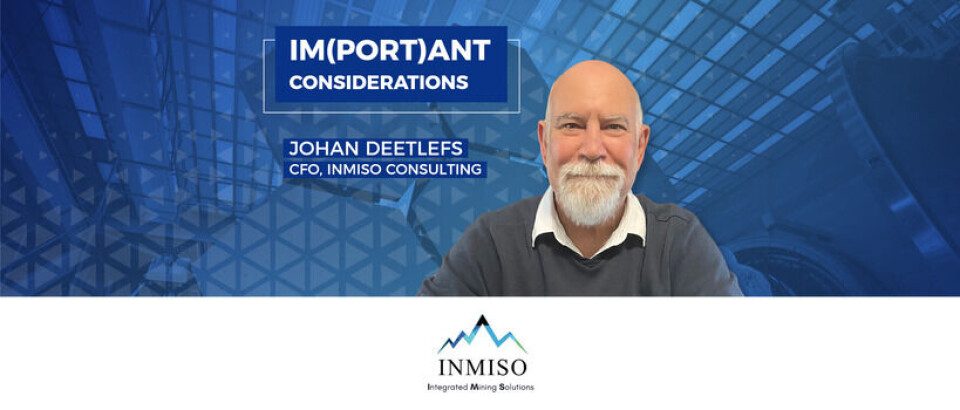Anyone looking to harness Africa’s resources and potential has to consider their logistics chain when they begin developing a product, project or mine, says Johan Deetlefs.
“There are a few examples where well-established mining companies have gotten themselves in trouble by not having an upfront design strategy to get bulk products to market,” explained Deetlefs, who held senior positions for mining companies and shipping outfits in Africa and Asia before joining Integrated Mining Solutions (INMISO) Consulting as Chief Financial Officer (CFO) in early 2022.
Roads, railways and ports are the arteries of industry, he says, and if they fail or get clogged, it can be fatal. While precious minerals such as diamonds or gold could be flown out, mining of bulk products such as iron ore and coal is hugely reliant on transport infrastructure, Deetlefs noted.
He says that all too often the way mined products will be moved from the mine to the marketplace is an after-thought compared to mineral exploration or mine development. Deetlefs gives the example of an iron ore mine that had to be abandoned due to logistical problems.
“The lack of a port and shipping strategy has a huge influence not only on a mining project, but also on the economies and citizens of the countries concerned,” Deetlefs said, noting that a failed mine has a wide impact. “Logistics also provide a significant market for employment. For instance, if you use trucks, somebody has to service the trucks, so secondary supporting industries spring up around the mine and logistics chain, and they won’t get work if the mine doesn’t go ahead.”
INMISO’s CFO says it’s vital that companies get early advice to tackle transport challenges. “We always suggest that you get your legal people involved from the word go, because they add value to the project in the sense that you don’t sit with major mistakes at the end of the day.”
Across Africa there can be issues with non-operational rail networks, poor quality roads, limited storage space for bulk products, a lack of suitable loading equipment, and ports that were often designed to trade food and small goods rather than mining products or large manufactured goods. Historically, some international mining companies have also been wary of operating in Africa due to changing governments and shifting laws and regulations creating long-term uncertainty.
“INMISO has in-depth experience in shipping and port strategy,” said Deetlefs, who has managed a shipping company in Hong Kong and developed a port strategy for a global mining company. INMISO’s founder, Robert Botha, has also been deeply involved in designing and developing shipping contracts. “We’re a diverse group of people with experts in all fields, and the benefit for our clients is that we are able to draw on all those experts at any given time,” Deetlefs explained.
While African infrastructure is lagging behind the rest of the world, Deetlefs is hopeful, given regional examples of governments’ willingness to address infrastructure and regulation, and partnerships such as a $700 million bridge in Mozambique financed by a Chinese bank. “If we can get better infrastructure and better regulation – and it’s possible to do that – then Africa is going to be booming. We’ve got a lot of potential for world-class mines,” Deetlefs concluded.
To join Africa Legal's mailing list please click here

